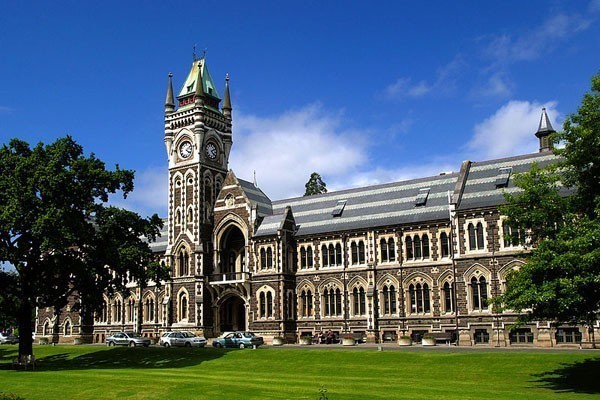In a flying start at his first Uni Council meeting last Tuesday, new Vice-Chancellor Grant Robertson (GRob for short) approved the ‘University of Otago Statement on Free Speech’. Free speech advocates have since come out calling it the “gold standard” of policies. The statement is the product of Emeritus Professor James Maclaurin and a working party – including OUSA Prez Keegan Wells.
In a press release following the statement’s approval, the Uni said, “The aim was to develop a statement that would give the University community clarity and confidence about freedom of speech and help staff and students engage with one another as a diverse community with diverse ideas.”
The statement itself reads: “The University affirms that it will not restrict debate or deliberation simply because the ideas put forth are thought by some to be offensive, unwise, immoral, or wrong-headed [...] to reiterate the University’s solemn and long-standing responsibility not only to promote lively and fearless freedom of debate and deliberation, but also to protect that freedom when others attempt to restrict it.” A big win for the Debating Society, a big loss for the average student who will lose the ability to hear themself think over Debating Society members in the Link.
The development of the statement had initially attracted controversy from free speech advocates after the public was excluded from its construction. But the same group, the Free Speech Union, have since come out in glowing support of the statement following its release. Free Speech Union Chief Executive, Jonathan Ayling, said that the statement was “the best we’ve seen in the country. It is the new gold standard for policies of this kind and should set the tone for other New Zealand universities.”
The much anticipated statement argues that free speech is at the core of the University’s identity, with Maclaurin writing, “Only through a preparedness to challenge, question, and criticise ideas can progress in understanding take place.” Because how would we cope without that one guy in every tutorial?
The statement also extends these renewed rights to visitors, indicating that the campus could soon “provide a space in which contrary and unpopular positions can be advanced free from political interference or suppression.” It was this clause in particular that has been applauded by Free Speech advocates, with Ayling stating, “We commend their stance that the university is not a place to be kept ‘safe’ from ideas.”
The University’s commitment to freedom of speech did carry the caveat that not all speech would be acceptable at the institution. “The University may properly restrict expression which violates the law. Moreover, the University accepts no duty to provide a space for those who are not members of its community to advance their ideas or theories in ways which fundamentally undermine the University’s character.” Looking at you, @StDavidsBuildingHate. The statement also gives the University regulatory abilities over free speech to ensure the ordinary activities of the University are not disrupted.
Keegan told Critic Te Ārohi that the process of its development was ”quite intimidating but really fun and I’m really happy with where the statement landed.” She pointed out that the statement allowed both for “free speech and the people to disagree with it, who are arguably more important.” Speaking to the regulatory abilities over free speech afforded to the University, Keegan explained that this meant “they don’t have to give them Burns 1.”
Although Keegan did not believe free speech events would skyrocket or decline noticeably, she mentioned that it did pave the way for easier collective action by the student body. Protest anyone?



